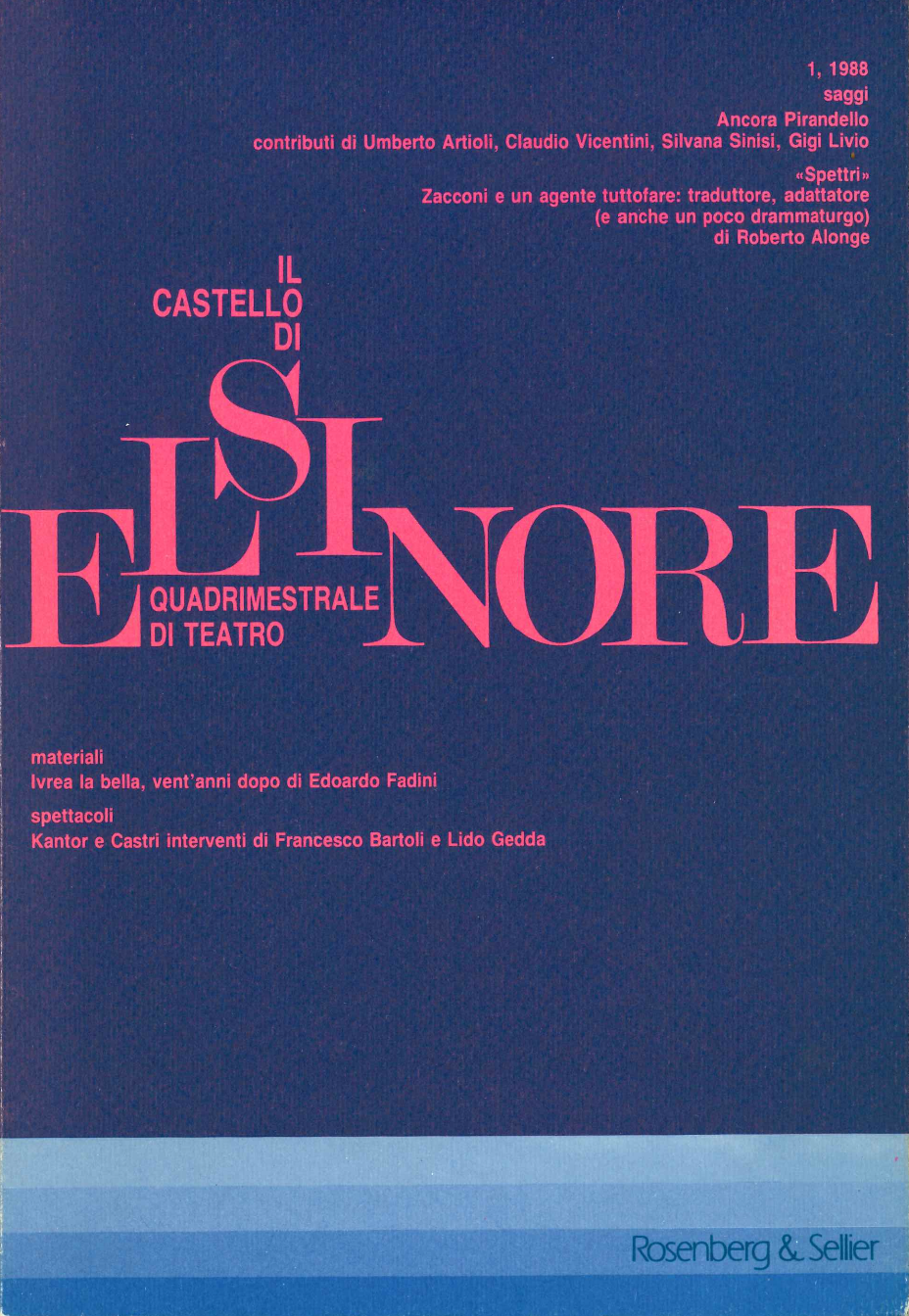Copyright (c) 2023 Roberto Alonge

This work is licensed under a Creative Commons Attribution 4.0 International License.
Abstract
Ibsen's Ghosts, in Ermate Zacconi's legendary interpretation, which was strongly criticized by the Italian intellectuals of the Twenties (Silvio d'Amico, Gobetti, etc.) is presented as the drama of Oswald's bodily destruction instead of a merely psycological drama. The author illustrates how - preliminarily to al Zacconi's Lombrosian-positivistic poetics - it is Enrico Polese's translation (a real adventurer in the Italian scene between nineteenth and twentieth century), which was chosen by Zacconi, led him to adopt this interpretative approach, which is a translation-reduction-adaptation that is almost a direction plan, suitably designed for the actor's theatre.

